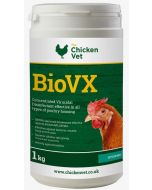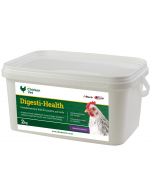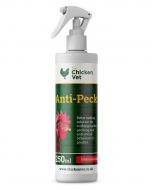Ben South BSC (Hons) BVetMed MRCVS
As you may already be aware, the Chief Veterinary Officers for England, Scotland and Wales have agreed to bring in new measures on Monday 14th December to help protect poultry and captive birds from the spread of disease. This is following several cases of Avian Influenza (AI) in both wild and captive birds across the UK.
AI is an airborne virus that is brought into the UK every winter from mainland Europe with migratory wild fowl. Just as with human Influenza, Avian Influenza comes in a variety of strains each of which vary in their severity of symptoms. Mild strains known as low pathogenic AI will only cause mild respiratory signs such as sneezing, runny nose, runny eyes and lethargy, whereas severe strains will cause your birds to appear very sick even to the point of causing sudden death.
During the winter period it is important that bird keepers stay vigilant and if you see any clinical signs, acute mortality or symptoms in your birds, you must contact your vets immediately and should not move the birds from your site to limit the spread of any disease.
Due to the levels of AI seen in the UK in recent weeks, a new housing order will be brought in for all bird keepers, domestic and commercial, from 14th December. It will, from this date, be a legal requirement to keep your birds, however big your flock, inside at all times. You must follow strict biosecurity measures and ensure your birds do not and cannot come into contact with wild birds. These strict control measures are to ensure the spread of Avian Influenza is limited and to put us in a better position to eradicate the disease from the UK.
A joint statement from Great Britain's three Chief Veterinary Officers, of England, Scotland and Wales, said: "We have taken swift action to limit the spread of the disease and are now planning to introduce a legal requirement for all poultry and captive bird keepers to keep their birds housed or otherwise separate from wild birds.
Whether you keep just a few birds or thousands, from 14 December onwards you will be legally required to keep your birds indoors, or take appropriate steps to keep them separate from wild birds. We have not taken this decision lightly, but it is the best way to protect your birds from this highly infectious disease."
For more information on the housing measure, please see the gov.uk website here.
If you do not have the facilities to house your birds, then considerable action must be taken to separate them from coming into contact with wild birds.
Both the Animal and Plant Health Agency (APHA) and DEFRA have released updated materials which clearly outline the biosecurity measures that can be brought into place to limit the risk of the spread of disease. In summary, the key areas to focus on are:
- All poultry and captive birds should be housed (where possible) or netted as of Monday 14th December in line with the housing order.
- Clean and disinfect clothing with DEFRA approved disinfectant products. This includes: footwear, equipment and vehicles, before and after contact with poultry and captive birds – if practical, use disposable protective clothing.
- Reduce the movement of people, vehicles and equipment to and from areas where poultry and captive birds are kept, to minimise contamination from manure, slurry and other products.
- Use effective vermin and rodent control.
- Ensure that housing is kept thoroughly clean and disinfected at all times.
- Keep fresh disinfectant at the right concentration at all points where people should use it, such as at farm or property entrances and before entering poultry and captive bird housing or enclosures.
- Minimise direct and indirect contact between poultry, captive birds and wild birds, including making sure all feed and water is not accessible to wild birds.
When considering cleaning products it is also important that you use an approved disinfectant to ensure that the products are effective against the diseases and bacteria that you want to eradicate and prevent from your site. Products such as BioShield or BioVX are both suitable against Avian Influenza and are avalable via The Chicken Vet.
For more biosecurity advice, please see DEFRA’s biosecurity guidance in full via the link here.
It is important to understand that birds are highly susceptible to changes in regime and their environment. As you can imagine, the implementation of the housing order may have unwanted effects on your birds and they may experience increased stress levels as a result. During this time it is vital that you provide enrichment within their enclosed area in the form of pecking blocks or toys to avoid aggression and unwanted pecking behaviours. Gut health can also be compromised due to increased stress levels, and so we would advise using a product such as Digesti-Health in the feed as this will help to maintain a balanced, healthy gut.
Poultry and captive bird keepers and members of the public should report dead wild birds to the DEFRA helpline on 03459 33 55 77 (option 7), and keepers should report any suspicion of disease to the APHA on 03000 200 301.
For updated advice and information relating to the current Avian Influenza cases and developments, please refer to the gov.uk website here.





